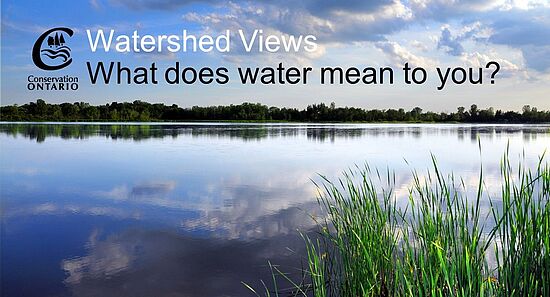Most of us have some sort of relationship with water. We’re drawn to the shoreline hikes, casting a line into a river and mucking about in a canoe or a kayak. Not much beats having a morning coffee hearing the water lapping in a nearby lake. If you’re lucky enough to be near a wetland, you can enjoy the chorus of frogs and birds. Recreationally, it just soothes and rejuvenates. But we also need water for drinking, growing and processing our food and driving industry – just as essential.
What goes behind making sure we have enough clean and sustainable water for all our uses?
Protecting our sources of water is a group effort that requires policy, programs and public engagement. Not only do you target the water itself, but you have to consider what’s impacting that water and possibly affecting its supply and the quality of water.
The watershed management role of Ontario’s 36 conservation authorities is a critical piece of this puzzle. They understand the value of water and how it’s connected to what we do in our daily lives.
Water doesn’t just protect itself. Through their various watershed management programs and projects, conservation authorities:
- Map and monitor our surface & groundwater in order to know how much we have, how it’s being used and what is needed to keep the watershed healthy;
- Monitor watershed conditions that impact water sources and develop integrated watershed management plans in order to maintain, restore or protect our natural resources for the long term;
- Deliver watershed stewardship programs such as green infrastructure, natural habitat restoration and rehabilitation in partnership with landowners and other partners protect the quality and supply of our water;
- Protect water quality through flood and erosion management;
- Monitor water levels within Ontario’s watersheds and raise alerts around low water levels through the local Low Water Response teams along with municipal and provincial partners
- Regulate development so that it doesn’t interfere with water quality and supply;
- Research to increase our knowledge about water, understand the true economic value of water and develop new approaches to protecting water
- Engage Ontario residents in water festivals, classroom and outdoor programs, events and projects so that they can learn about and protect water too.
These conservation authority programs and activities help Ontario to adapt to the challenges of climate change which directly impact water quality and quantity and they do it by leveraging important partnerships with local municipalities, other levels of government, agencies and residents.
For conservation authorities, water means ‘life’. What does it mean for you?
Do You Know Where Your Drinking Water Comes From?
Everyone plays a role in helping to protect our sources of drinking water. Learn more on protecting Ontario’s sources of municipal drinking water.
Wetlands Help Protect Ontario's Water
Wetlands play a vital role in Ontario’s water system. The help to clean our water with their plants which help to filter contaminants before letting it seep back into groundwater sources. Wetlands also help to reduce flooding by slowing the speed of floodwaters and storing excess water. This helps to prevent flooding from our homes and businesses. Click here to see how this works.
